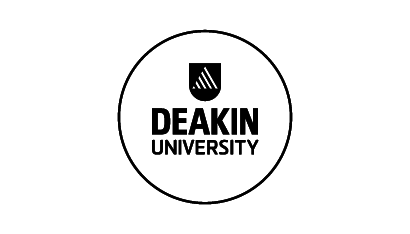November is National Career Development Month, a time for employees and employers to focus on career planning and professional development.
If you’re a mid-level professional, it’s likely you’re facing one of three realities:
- You’ve mastered your current role and want a step up.
- You’re eyeing a promotion or leadership position but are unsure how to get there.
- You want career growth, but starting over isn’t an option.
If so, this guide is for you. Whether you’re aiming for a new title, bigger challenges, or a complete pivot within your field, here’s how you can strategically advance your career without hitting the reset button.
Develop your skill set
According to the World Economic Forum’s Future of Jobs Report 2025, if the world’s workforce was made up of 100 people, 59 would need training by 2030. In other words, your existing skillset may not be enough to keep you competitive in just five years from now.
This is the perfect time to double down on your specialist knowledge. Identify emerging trends in your industry such as artificial intelligence or cyber security. Position yourself as a subject matter expert others can rely on – that reputation is often what precedes a promotion.
>> Discover our collection of online artificial intelligence degrees
>> Discover our collection of cyber security degrees
Nurture your soft skills
Soft skills continue to be essential in today’s workforce. Employers rank resilience, flexibility, leadership, social influence, creative thinking, motivation, and self-awareness among the most essential skills. These highlight the value of adaptability, collaboration, and emotional intelligence.
Additional key soft skills include empathy, active listening, curiosity, conflict resolution, cross-functional collaboration, and effective communication. Mastering these interpersonal skills is what sets leaders apart, because how you work matters as much as what you do.
-

 Nottingham Trent University
Nottingham Trent University
How to Build Leadership ResilienceBusiness & Management,Psychology & Mental Health
Ask for feedback
One of the most effective steps you can take is to ask your manager or peers for feedback. This not only shows initiative but also opens the door to constructive conversations about your performance, growth areas, and promotion potential.
By actively listening to their insights and following through on their suggestions, you demonstrate a willingness to grow and align with the company’s goals, these are both qualities that leaders look for when considering someone for a promotion.
Demonstrate your leadership skills
Strong communication is at the heart of effective leadership and leadership skills are essential when you’re aiming for a promotion. Demonstrating that you can clearly share ideas, motivate others, and lead by example shows you’re ready for greater responsibility.
Whether it’s supporting colleagues, offering guidance, or maintaining consistent performance, the ability to communicate with clarity and influence others is what sets future leaders apart. Building these skills not only boosts your credibility but also signals you’re prepared for the challenges that come with a higher role.
>> Discover our collection of online leadership degrees
Show your value
If you’re aiming for a promotion, it’s essential to understand and communicate how you’re adding value to the company. Employers look for individuals who perform well, align with the company’s goals and contribute to its success. Proactively discussing your contributions and sharing your progress shows that you’re engaged and invested.
You can increase your value by continuously improving your skills, delivering strong results, and getting involved in different areas of the business. The more you communicate your growth and impact, the more likely you are to be seen as ready for the next step in your career.
Take the next step toward your promotion with FutureLearn
If you’re ready to move up in your career, we’re here to support you. Explore expert-led content, learn at your own pace and gain the in-demand skills your industry needs.
- Organisational Behaviour and Leadership Skills by Sentinel|9
- Communication and Interpersonal Skills at Work by the University of Leeds
- Business Etiquette: Master Communication and Soft Skills by CQUniversity Australia
- Power, Politics, and Influence at Work by the University of Manchester
- Leading Strategic Innovation: How to Lead with Purpose by Deakin University and Coventry University
- Professional Resilience: Building Skills to Thrive at Work by Deakin University
View the original article and our Inspiration here





